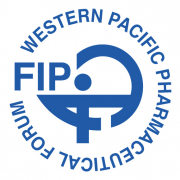Docs’ right to dispense medicine
27 Jun, 2014
reference:http://www.mps.org.my/newsmaster.cfm?&menuid=36&action=view&retrieveid=3910
THE Association of Specialists in Private Medical Practice in Malaysia is of the view that dispensing of medication is the sacred right of the physician.
This does not mean that the patient does not have the right to choose where to get his or her medication.
It has always been the choice of the patient, whether to obtain a prescription or to get medication from the medical centre concerned.
As the field of medicine has progressed, various disciplines have grown out of it, including many medical subspecialties, including the pharmacy practice and the dispensing of medication.
The early physicians prepared their own medications and even made mixtures, balms, lotions and ointments, thus giving themselves the original name of “dispensary”.
The early doctor was unique in that his own formulations could be adjusted to the patient’s illness and needs, developing the art and science into a craft that could not be duplicated.
It was also the doctor who would perform the surgery, do the dressing and administer various forms of supportive treatment.
Thus, this sacred right of dispensing medication to the patient should always remain with the doctor.
Of course, with the advancement of the discipline of pharmacy and with the sprouting of dozens of pharmacies in every township, their role now supplements the doctor, especially when these pharmacies are fully equipped, as compared to the doctor who keeps only essential medications for his practice.
The family practitioner must be appreciated and valued for their contribution to society, as they have for decades been providing primary care to the patients, screening the patients and hence ensuring that the general health of the community remains good.
The foundation of their practice includes the dispensing of medication, thus ensuring prompt symptomatic and curative care.
The presence of pharmacies nearby or next door should complement their service, but should by no means displace their role in early and urgent therapeutic intervention of illnesses as provided by the family doctor.
We cannot copy the practice of the developed western world, where there is a clear distinction and division between the roles of a doctor and a pharmacist.
No pharmacy in the West would continue to provide repeat medications or even offer consultation to the patient, to “save” costs, as is sometimes seen in this country.
For the above reasons, the role of the physician and doctor to provide consultation, care and treatment to the patient as a one-stop centre must be protected and continued for the present.
DR SNG KIM HOCK
Association of Specialists in Private Medical Practice, Malaysia
– See more at: http://www.mps.org.my/newsmaster.cfm?&menuid=36&action=view&retrieveid=3910#sthash.IcCy8Fqy.dpuf
